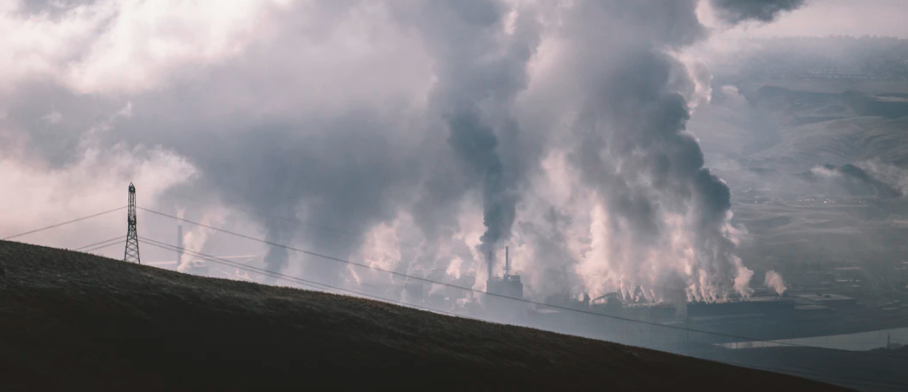We’ve all heard a lot about the Climate Crisis, Global Warming, Climate Change, Net Zero and the Energy Transition. What’s missed in all the talk involving these buzzwords and catchy phrases is that it is decarbonisation driving the discussion. I argue that it is the central factor in current and future changes to the operations of energy producers, distributers and suppliers. Decarbonisation impacts business operations and informs business and technology transformation within the energy sector and connected vertical and horizontal markets.
Decarbonisation and its relation to energy supply and use impacts every industry sector, in every country on Earth.
What’s more, decarbonisation and its relation to energy supply and use impacts every industry sector in every country on Earth. This is because decarbonisation shapes world energy transition strategies and the nature of future business change that’s required to achieve the Paris Agreement goals, the UK’s Ten Point Plan for a Green Industrial Revolution, Germany’s Climate Action Plan 2050, the US plan on Tackling the Climate Crisis, all intended to deliver the Nationally Determined Contribution (NDC) under the Paris Agreement. It affects a firm’s Tier 1 and 2 suppliers along with Scope 1, 2 and 3 emissions.

The European Emissions Trading Scheme (ETS) was designed explicitly to address climate change and develop a cap and trade system of carbon credits. Post-Brexit, the UK has put in place a UK ETS system which acts in essentially the same manner. Energy producers have been hit the most by this system, having received no free allowances (except for country specific derogation) and the allowance being benchmarked against the top 10 performing installations (outside the top 10, installations get fewer allowances and have to buy credits from better performing installations – the basis of carbon trading). The manufacturing industry and airlines receive a free allowance (to avoid ‘carbon leakage’) at 30% for manufacturing and 82% for aviation. If this will remain the case as decarbonisation goals become more widespread is to be seen.
Industry Disruption
The impacts to the energy sector (generation, distribution and supply), manufacturing and aviation sectors that have already been seen, and will continue to be seen, are significant. For example, within energy this is on top of challenges to traditional generation, supply and billing such as decentralisation of energy generation and storage (e.g. PV cells, battery tech and Electric Vehicles [EV]). These challenges affect the energy industry’s value proposition to business and consumers alike, for grid-delivered energy priced using a ‘cost-plus’ model – that is becoming less tenable and relevant. If this wasn’t enough, by 2050 the energy sector will need to be generating an additional 18-30GW of peak power to meet the UK’s projected energy needs, all while reducing carbon output to net zero.
It’s not just the energy sector; the UK’s Net Zero 2050 and EU initiatives will impact all other industries as government pushes towards net zero carbon emissions. It won’t be possible to achieve agreed carbon reduction goals without decarbonisation across all other industrial and public sectors and the impacts will be swift in arriving and broad in scope.
Disruption to achieve decarbonisation goals won’t be limited to energy, aviation and manufacturing; it will continue to grow across the consumer sectors too. For example, retail of all types, food production and supply, all forms of transport (rail, road, air, sea), utility provision, housing and communications are all areas that the public at large will see changes too due to decarbonisation.
Societal Disruption
Consider Electric Vehicles (EV), also referred to as Battery Electric Vehicles (BEV) by the automotive industry, and the ban on sales of new petrol and diesel cars in 2030. Although the popular/public mindset sees EV as being about transport and pollution, it will NOT just be a change to transport, it will be the single most impactful technology-oriented disrupter of society and industry in the next 15-30 years, which will cause huge societal change and impact all sectors and much of public life.
All forms of transport will change, how we heat our homes, the way we power our homes through Distributed Energy Resources (DER), Distributed Utilities (DU), home solar, heat pumps and small scale wind generation that are no longer owned by the power companies will give rise to the Prosumer being the majority. Many will go off grid.
Financial Disruption
Green Finance or Sustainable Finance is also a response to decarbonisation worthy of a dedicated article. Coupling “private and public sector finance to drive net-zero transition” means getting those holding trillions in investment capital to divest from high carbon investments. We’ve seen that with the likes of Bank of America, who are looking to remove greenhouse gas emissions from its “financing activities, operations and supply chain”. Yes, the supply chain gets hit again even with finance.

Many Routes, One Shared Goal
Whichever industry sector you look at, whatever national or regional government, business large or small, whatever change to finance, however society and policy get reshaped, every time climate change related initiatives are discussed or proposed, they make sense as a congruent set when looking to what is at the heart of the matter – and that is decarbonisation.
Putting this front and centre ensures that all conversations are grounded on a shared theme and goal. There are many routes, but the single, shared objective is decarbonisation.
Mark.


